232 start with F start with F
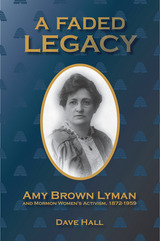
Placing Lyman’s story within a local and national context, award-winning author Dave Hall examines the roots and trajectory of Mormon women’s activism. Born into a polygamist family, Lyman entered the larger sphere of public life at the time when the practice of polygamy was ending and Mormonism had begun assimilating mainstream trends. The book follows her life as she prepared for a career, married, and sought meaning in a rapidly changing society. It recounts her involvement in the Relief Society, the Mormon women’s charity group that she led for many years and sought to transform into a force for social welfare, and it considers the influence of her connections with national and international women’s organizations. The final period of Lyman’s life, in which she resigned from the Relief Society amidst personal tragedy, offers insight into the reasons Mormon women abandoned their activist heritage for a more conservative role, a stance that is again evolving.
Winner of the Mormon History Association's Best First Book Award.
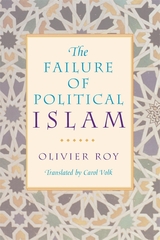
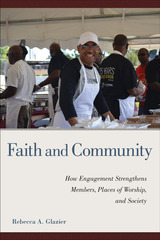
Faith and Community shows the benefits of religious people taking action in their communities. Through more than a decade of multi-method data collection, Rebecca Glazier surveyed over 4,000 congregants and nearly 500 clergy in Little Rock, Arkansas to gather opinions from members and leaders on community issues and engagement. Together with interviews and case studies, her findings indicate that active congregants are happier and more civically involved.
Faith and Community provides valuable insights into the relationship between religion and community engagement. The data illustrates how community engagement benefits individuals, congregations, and democracy and offers one solution to what ails religion in America today.
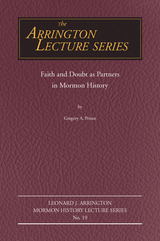
Volume 19, The Leonard J. Arrington Lecture Series
The Special Collections and Archives of Utah State University's Merrill-Cazier Library houses the personal and historical collection of Leonard J. Arrington, renowned scholar of the American West.
The Leonard J. Arrington Mormon History Lecture annually hosts the presentation of current research by a leading scholar. Among the lecturers have been such notable historians as Thomas G. Alexander, Richard L. Bushman, Sarah Barringer Gordon, Howard Lamar, Jan Shipps, Donald Worster, and Pulitzer Prize-winner Laurel Thatcher Ulrich.
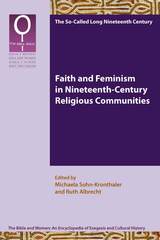
Explore a diversity of feminist readings of the Bible
This latest volume in the Bible and Women series is concerned with documenting, through word and image, both well-known and largely unknown women and their relationship to the Bible from the period of the late eighteenth century up to the beginning of the twentieth century. The essays in this collection illustrate the broad range of treatment of the Holy Scripture. Paul Chilcote, Marion Ann Taylor, Christiana de Groot, Elizabeth M. Davis, and Pamela S. Nadell offer perspectives on the Anglo-American sphere during this period. Marina Cacchi, Adriano Valerio, Inmaculada Blasco Herranz, and Alexei Klutschewski and Eva Maria Synek illuminate the areas of southern and eastern Europe. Angela Berlis, Ruth Albrecht, Doris Brodbeck, Ute Gause, and Michaela Sohn-Kronthaler examine women from the German-speaking world and their texts. Bernhard Schneider, Magda Motté, Katharina Büttner-Kirschner, and Elfriede Wiltschnigg treat the subject area of religious literature and art.
Features
- Insight into how women participated in academic exegesis and applied biblical figures as models for structuring their own lives
- Exploration of genres used by women, including letters, diaries, autobiographical records, stories, novels, songs, poems, and specialized exegetical treatises and commentaries on individual books of the Bible
- Detailed analyses of women’s interpretations ranging from those that sought to confirm traditions to those that challenged them

"This book began in an argument between friends surprised to find themselves on opposite sides of the debate about whether the United States and the United Kingdom should invade Iraq in 2003. Situated on opposite sides of the Atlantic, in different churches, and on different sides of the just war/pacifist fence, we exchanged long emails that rehearsed on a small scale the great national and international debates that were taking place around us. We discovered the common ground we shared, as well as some predictable and some surprising points of difference....When the initial hostilities ended, our conversation continued, and we felt the urgency of contributing to a wider Christian debate about whether and when war could be justified."—From the Preface
So began a dynamic collaboration that developed into a civil but provocative debate over matters of war and peace that is Faith and Force. From the ancient battles between Greek city-states to the Crusades to the World Wars of the twentieth-century to the present-day wars in Afghanistan and Iraq and the Middle East, aggressors and defenders alike have claimed the mantle of righteousness and termed their actions just. But can the carnage of war ever be morally grounded? And if so, how?
These are the questions that David L. Clough, a Methodist proponent of pacifism, and Brian Stiltner, a Catholic theologian and just war adherent, have vowed to answer—together. With one voice, Clough and Stiltner outline and clarify issues of humanitarian intervention, weapons proliferation, and preventative war against rogue states. Their writing is grounded in Christian tradition and provides a fresh and illuminating account of the complexities and nuances of the pacifist and just war positions.
In each chapter Clough and Stiltner engage in debate on the issues, demonstrating a respectful exchange of ideas absent in much contemporary political discourse—whether on television or in the classroom. The result is a well-reasoned, challenging repartee that searches for common ground within the Christian tradition and on behalf of the faithful promotion of justice—yet one that also recognizes genuine differences that cannot be bridged easily. Intended for a broad audience, Faith and Force is the perfect foil to the shrill screeching that surrounds partisan perspectives on military power and its use.
To help with using the book in a classroom context, the authors have provided Questions for Reflection and Discussion for each chapter. You can download these questions in PDF format at press.georgetown.edu.
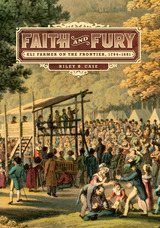
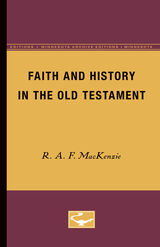
Faith and History in the Old Testament was first published in 1963. Minnesota Archive Editions uses digital technology to make long-unavailable books once again accessible, and are published unaltered from the original University of Minnesota Press editions.
This absorbing and readable account of the religion of ancient Israel is presented against the background of other cultures of the time. Father MacKenzie traces the development of Israel's belief and draws upon modern knowledge of the cultures of the ancient Near East to illuminate the history. But the main stress is on the religious meaning which the Israelites themselves perceived in the events they experienced, a meaning which is accepted and extended in different ways by modern Jews and by Christians.
The author explains, in non-technical style, the distinctive features of the faith of the Old Testament as evident in such themes as covenant, creation, retribution, the pursuit of wisdom, and the hope of salvation. At the outset, he defines the study of theology and places the study of Chrisson with that of Israel. He analyzes Israel's concept of God and the character of the covenant between God and the people of Israel, discusses the Israelite literature on the creation of earth and its creatures, and considers the interrelationship between myth and history. He discusses the search for wisdom in Israel, the public prayers, and the concept of a promise from the deity. In conclusion, he presents the interpretation by the Old Testament authors of these distinctive features of Israel's religion.
The book is intended for lay people interested in modern Bible interpretation, as well as for priests, ministers, and rabbis who wish a general survey of the Old Testament. It is suitable for use as a text or supplementary reading in religion or theology courses.

In Faith and Meaning, one of Appalachian religion's most eloquent spokesmen reveals a people devoted to and thoughtful about their religion, and profoundly influenced by it. Loyal Jones's three decades of conversations and interviews, supplemented by documents such as sermons, testimonies, and articles of faith, articulate Southern Upland views on basic issues of the human condition—faith, God, the world, the Word, and the devil—as well as on community issues such as racial integration and women in the church. In their own voices these people describe their beliefs, their churches, and their lives, exposing a deep conviction tempered with humanity and humor.
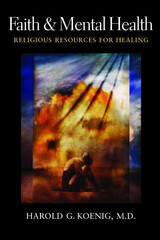
Dr. Harold Koenig opens a window on mental health, providing an unprecedented source of practical information about the relationship between religion and mental health. He examines how Christianity and other world religions deliver mental health services today, and he makes recommendations, based on research, expertise, and experience, for new programs to meet local needs.
Meticulously researched and documented, Faith and Mental Health includes
- Research on the relationship between religion and positive emotions, psychiatric illnesses, and severe and persistent mental disorders
- Ways in which religion has influenced mental health historically, and how now and in the future it can be involved with mental health
- A comprehensive description and categorization of Christian and non-Christian faith-based organizations that provide mental health resources
- Resources for religious professionals and faith communities on how to design effective programs
Presenting a combination of the history and current research of mental health and religion along with a thorough examination of faith-based organizations operating in the field, this book is a one-of-a-kind resource for the healthcare community; its valuable research and insights will benefit medical and religious professionals, and anyone concerned with the future of mental health care.
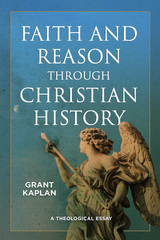
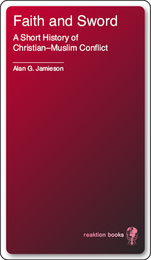
Faith and Sword opens with the tumultuous first centuries of the conflict, examining the religious precepts that framed clashes between Christians and Muslims and that ultimately fueled the legendary Crusades. Traversing the full breadth of the Arab lands and Christendom, Jamieson chronicles the turbulent saga from the Arab conquests of the seventh century to the rise of the powerful Ottoman Empire and its fall at the end of World War I. Faith and Sword then explores the complex dynamics that emerged later in the twentieth century, as Christendom was transformed into the secular West and Islamic nations overthrew European colonialism to establish governments straddling modernity and religiosity.
From the 1979 Iranian revolution to the Lebanon hostage crisis to the present-day war in Iraq, Faith and Sword reveals the essence of this enduring struggle and its consequences.
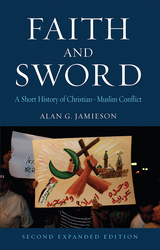
Faith and Sword opens with the tumultuous first centuries of the conflict, examining the religious precepts that framed clashes between Christians and Muslims and that ultimately fueled the legendary Crusades. Traversing the full breadth of the Arab lands and Christendom, Jamieson chronicles the turbulent saga from the Arab conquests of the seventh century to the rise of the powerful Ottoman Empire and its fall at the end of World War I. He then explores the complex dynamics that emerged later in the twentieth century, as Christendom was transformed into the secular West and Islamic nations overthrew European colonialism to establish governments straddling modernity and religiosity.
From the 1979 Iranian revolution to the Lebanon hostage crisis to—in this new expanded edition—the recent wars in Syria, Iraq, and Afghanistan, Faith and Sword reveals the essence of this enduring struggle and its consequences.
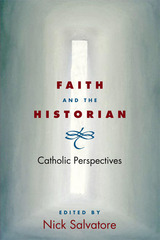
Faith and the Historian collects essays from eight experienced historians discussing the impact of being "touched" by Catholicism on their vision of history. That first graduate seminar, these essays suggest, did not mark the inception of one's historical sensibilities; rather, that process had deeper, and earlier, roots. The authors--ranging from "cradle to the grave" Catholics to those who haven’t practiced for forty years, and everywhere in between--explicitly investigate the interplay between their personal lives and beliefs and the sources of their professional work. A variety of heartfelt, illuminating, and sometimes humorous experiences emerge from these stories of intelligent people coming to terms with their Catholic backgrounds as they mature and enter the academy. Contributors include: Philip Gleason, David Emmons, Maureen Fitzgerald, Joseph A. McCartin, Mario T. Garcia, Nick Salvatore, James R. Barrett, and Anne M. Butler.
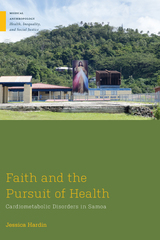
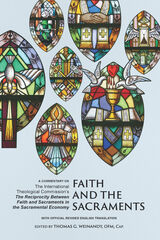

A front-burner issue on the public policy agenda today is the increased use of partnerships between government and nongovernmental entities, including faith-based social service organizations. In the wake of President Bush's faith-based initiative, many are still wondering about the effectiveness of these faith-based organizations in providing services to those in need, and whether they provide better outcomes than more traditional government, secular nonprofit, and for-profit organizations. In Faith, Hope, and Jobs, Stephen V. Monsma and J. Christopher Soper study the effectiveness of 17 different welfare-to-work programs in Los Angeles County—a county in which the U.S. government spends 14% of its entire welfare budget—and offer groundbreaking insight into understanding what works and what doesn't.
Monsma and Soper examine client assessment of the programs, their progress in developing attitudes and resources important for finding self-supporting employment, and their experience in finding actual employment. The study reveals that the clients of the more explicitly faith-based programs did best in gaining in social capital and were highly positive in evaluating the religious components of their programs. For-profit programs tended to do the best in terms of their clients finding employment. Overall, the religiously active respondents tended to experience better outcomes than those who were not religiously active but surprisingly, the religiously active and non-active tended to do equally well in faith-based programs.
Faith, Hope, and Jobs concludes with three sets of concrete recommendations for public policymakers, social service program managers, and researchers.
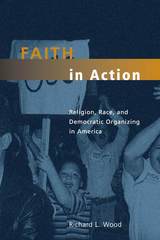
To find out how this faith-based form of community organizing succeeds, Richard L. Wood spent several years working with two local groups in Oakland, California—the faith-based Pacific Institute for Community Organization and the race-based Center for Third World Organizing. Comparing their activist techniques and achievements, Wood argues that the alternative cultures and strategies of these two groups give them radically different access to community ties and social capital.
Creative and insightful, Faith in Action shows how community activism and religious organizations can help build a more just and democratic future for all Americans.
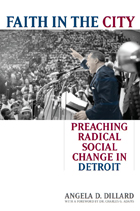
“The dynamics of Black Theology were at the center of the ‘Long New Negro Renaissance,’ triggered by mass migrations to industrial hubs like Detroit. Finally, this crucial subject has found its match in the brilliant scholarship of Angela Dillard. No one has done a better job of tracing those religious roots through the civil rights–black power era than Professor Dillard.”
—Komozi Woodard, Professor of History, Public Policy & Africana Studies at Sarah Lawrence College and author of A Nation within a Nation: Amiri Baraka (LeRoi Jones) and Black Power Politics
“Angela Dillard recovers the long-submerged links between the black religious and political lefts in postwar Detroit. . . . Faith in the City is an essential contribution to the growing literature on the struggle for racial equality in the North.”
—Thomas J. Sugrue, University of Pennsylvania, author of The Origins of the Urban Crisis: Race and Inequality in Postwar Detroit
Spanning more than three decades and organized around the biographies of Reverends Charles A. Hill and Albert B. Cleage Jr., Faith in the City is a major new exploration of how the worlds of politics and faith merged for many of Detroit’s African Americans—a convergence that provided the community with a powerful new voice and identity. While other religions have mixed politics and creed, Faith in the City shows how this fusion was and continues to be particularly vital to African American clergy and the Black freedom struggle.
Activists in cities such as Detroit sustained a record of progressive politics over the course of three decades. Angela Dillard reveals this generational link and describes what the activism of the 1960s owed to that of the 1930s. The labor movement, for example, provided Detroit’s Black activists, both inside and outside the unions, with organizational power and experience virtually unmatched by any other African American urban community.
Angela D. Dillard is Associate Professor of Afroamerican and African Studies at the University of Michigan. She specializes in American and African American intellectual history, religious studies, critical race theory, and the history of political ideologies and social movements in the United States.
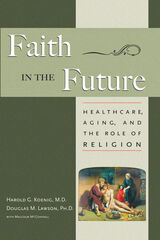
After an interview in Newsweek about his book Spirituality in Patient Care and his research in religion and health, Dr. Harold Koenig became the international voice on spirituality, health, and aging. In this book, Faith in the Future, he is joined by two other experts on aging and human development. They present a compelling look at one of the most severe issues in today’s society: health care in America.
How will we provide quality healthcare to older adults needing it during the next thirty to fifty years? Who will provide this care? How will it be funded? How can we establish systems of care now to be in place as demographic and health-related economic pressures mount?
Alongside the sobering reality of our country’s challenges, there are reasons for optimism. Innovative programs created and maintained by volunteers and religious congregations are emerging as pivotal factors in meeting healthcare needs. Summarizing decades of scientific research and providing numerous inspirational examples and role models, the authors present practical steps that individuals and institutions may emulate for putting faith into action.
<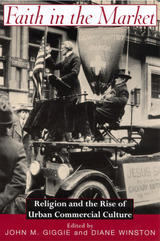
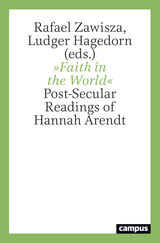
This volume is a manifold approach to a less evident and much-neglected undercurrent in the work of Hannah Arendt, namely her ambiguous relation to the Judeo-Christian religious heritage. It contains discussions about strictly theological motives—like salvation or original sin—but it also explores topics such as forgiveness, love, natality, and the world within the religious aura.
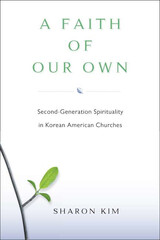
A Faith of Our Own investigates the development and growth of these houses of worship, a recent and rapidly increasing phenomenon in major cities throughout the United States.
Immigration historians have depicted the second-generation as a transitional generation--on the steady march toward the inevitable decline of ethnic identity and allegiance. Sharon Kim suggests an alternative path. By harnessing religion and innovatively creating hybrid religious institutions, second-generation Korean Americans are assertively defining and shaping their own ethnic and religious futures. Rather than assimilating into mainstream American evangelical churches or inheriting the churches of their immigrant parents, second-generation pastors are creating their own hybrid third space--new autonomous churches that are shaped by multiple frames of reference.
Including data gathered over ten years at twenty-two churches, A Faith of Our Own is the most comprehensive study of this topic that addresses generational, identity, political, racial, and empowerment issues.
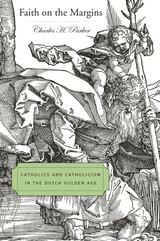
In the wake of the 1572 revolt against Spain, the new Dutch Republic outlawed Catholic worship and secularized all church property. Calvinism prevailed as the public faith, yet Catholicism experienced a resurgence in the first half of the seventeenth century, with membership rivaling that of the Calvinist church. In a wide-ranging analysis of a marginalized yet vibrant religious minority, Charles Parker examines this remarkable revival.
It had little to do with the traditional Dutch reputation for tolerance. A keen sense of persecution, combined with a vigorous program of reform, shaped a movement that imparted meaning to Catholics in a Protestant republic. A pastoral organization known as the Holland Mission emerged to establish a vigorous Catholic presence. A chronic shortage of priests enabled laymen and women to exercise an exceptional degree of leadership in local congregations. Increased interaction between clergy and laity reveals a picture that differs sharply from the standard account of the Counter-Reformation's clerical dominance and imposition of church reform on a reluctant populace.
There were few places in early modern Europe where a proscribed religious minority was so successful in remaining a permanent fixture of society. Faith on the Margins casts light on the relationship between religious minorities and hostile environments.
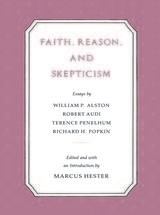
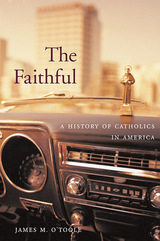
Shaken by the ongoing clergy sexual abuse scandal, and challenged from within by social and theological division, Catholics in America are at a crossroads. But is today’s situation unique? And where will Catholicism go from here? With the belief that we understand our present by studying our past, James O’Toole offers a bold and panoramic history of the American Catholic laity.
O’Toole tells the story of this ancient church from the perspective of ordinary Americans, the lay believers who have kept their faith despite persecution from without and clergy abuse from within. It is an epic tale, from the first settlements of Catholics in the colonies to the turmoil of the scandal-ridden present, and through the church’s many American incarnations in between. We see Catholics’ complex relationship to Rome and to their own American nation. O’Toole brings to life both the grand sweep of institutional change and the daily practice that sustained believers. The Faithful pays particular attention to the intricacies of prayer and ritual—the ways men and women have found to express their faith as Catholics over the centuries.
With an intimate knowledge of the dilemmas and hopes of today’s church, O’Toole presents a new vision and offers a glimpse into the possible future of the church and its parishioners. Moving past the pulpit and into the pews, The Faithful is an unmatched look at the American Catholic laity. Today’s Catholics will find much to educate and inspire them in these pages, and non-Catholics will gain a newfound understanding of their religious brethren.
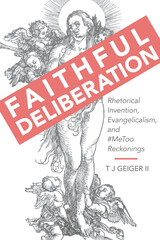
While often perceived as an insular enclave with a high level of in-group agreement about political and social issues, predominantly white evangelicalism includes prominent voices urging deliberation about appropriate responses to sexual abuse, domestic violence, and the discourses surrounding these traumas. In Faithful Deliberation: Rhetorical Invention, Evangelicalism, and #MeToo Reckonings, T J Geiger II examines theologically reflective rhetorical invention that reconfigures trauma-minimizing commonplaces in order to facilitate community-internal deliberation.
Resting at the intersection of feminist rhetorical studies and religious rhetorics, this book contains four related theological-rhetorical case studies that consider how figures such as Beth Moore, Jen Hatmaker, Rachael Denhollander, Karen Swallow Prior, and others engaged in rhetorical invention. Each juxtaposes differing approaches to contending with rape, domestic violence, sexual abuse, and other traumas. Each case contrasts an approach based on appeals to highly circumscribed understandings of grace, purity, and other denomination-specific traditions and values with approaches rooted in those same traditions and values, but with an eye toward community transformation, healing through justice, and reinvigorated forms of forgiveness. Geiger skillfully argues that this faithful deliberation involves practices of thinking, reflecting, storytelling, and acting within a tightly bounded community that can foster change through a recommitment to core values.
These rhetorical practices exemplify the kind of inventive listening deliberative discourse requires, point to the sort of healing they may promote in response to trauma and trauma discourses, and occur within a range of genres including social media posts, blog entries, published interviews, victim impact statements, and petitions. This study of invention for evangelical-to-other-evangelical deliberative discourse contributes to rhetorical studies by demonstrating the civic and social possibilities of rhetoric within religious enclaves. By locating the case studies as recent moments in longer US public and evangelical histories of activism, deliberative practice, and politics, Faithful Deliberation brings into focus how enclaves and the dominant public sphere interact.
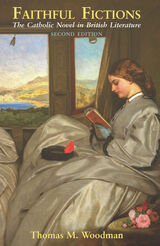
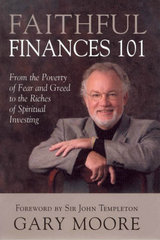
Faithful Finances 101 is a first-person narrative by an outspoken advocate of faith-based investing. A senior vice president of investments at Paine Webber before founding his own investment firm as "counsel to ethical and spiritual investors," Gary Moore warns that much of the economic advice emanating from some popular and influential evangelical authors and speakers is based on scare tactics and distortions of what the Bible has to say about finances. He draws on fifty years of studying the Bible, politics, and economics and presents insights for those who want to be faithful in their finances—to use 100 percent of the time, talent, and treasure with which they have been entrusted for the glory of God as well as for the benefit of others and themselves, and not just give 10 percent of their incomes to the church.
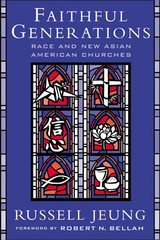
Religion—both personal faith and institutional tradition—plays a central role in the lives of the 12.5 million Asians in the United States. It provides comfort and meaning, shapes ethical and political beliefs, and influences culture and arts. Faithful Generations details the significance of religion in the construction of Asian American identity. As an institutional base for the movement toward Asian American panethnicity, churches provide a space for theological and political reflection and ethnic reinvention.
With rich description and insightful interviews, Russell Jeung uncovers why and how Chinese and Japanese American Christians are building new, pan-Asian organizations. Detailed surveys of over fifty Chinese and Japanese American congregations in the San Francisco Bay area show how symbolic racial identities structure Asian American congregations. Evangelical ministers differ from mainline Christian ministers in their construction of Asian American identity. Mobilizing around these distinct identities, evangelicals and mainline Christians have developed unique pan-Asian styles of worship, ministries, and church activities. Portraits of two churches further illustrate how symbolic racial identities affect congregational life and ministries. The book concludes with a look at Asian American–led multiethnic churches.
This engaging study of the shifting relationship between religion and ethnicity is an ideal text for classes in ethnicity, religion, and Asian American studies.
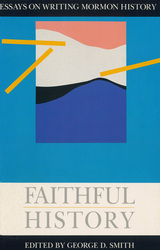
In this compilation, editor George D. Smith has assembled sixteen thought-provoking essays which represent this ongoing discussion. They include “On Being a Mormon Historian” by D. Michael Quinn, “Two Integrities: An Address to the Crisis in Mormon Historiography” by Martin E. Marty, “Objectivity and History” by Kent E. Robson, “The Acids of Modernity and the Crisis in Mormon Historiography” by Louis Midgley, and “Historicity of the Canon” by Edward H. Ashment.
“History, myth, and legend are not always distinguishable,” cautions Smith,” “but there are some things we can know. The authors of these essays attempt to define the boundaries between objectivity and the biases of belief and unbelief which may color what is written about the past.”
Over the past decade Mormons have debated how their history should be written. New Mormon Historians believe that balanced, unprejudiced approaches produce the most reliable history. Traditionalists contend that no historian can be completely objective, that Mormon history should therefore be written with the “pre-understanding” that Joseph Smith restored the ancient Christian church.
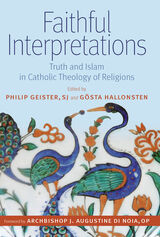
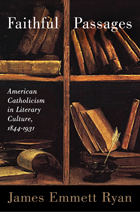
Faithful Passages also reveals new dimensions in American religious literary culture by moving beyond the antebellum period to consider how the first important cohort of Catholic writers shaped their message for subsequent generations of readers in the late nineteenth and early twentieth centuries. Perhaps most strikingly, Ryan shows that by the early twentieth century, Roman Catholic themes and traditions in American literature would be advanced in complex ways by mainstream, non-Catholic modernist writers like Kate Chopin and Willa Cather.
Catholic literary culture in the United States took shape in a myriad of ways and at the hands of diverse participants. The process by which Roman Catholic ideas, themes, and moralities were shared and adapted by writers with highly differentiated beliefs, Ryan contends, illuminates a surprising fluidity of religious commitment and expression in early U.S. literary culture.
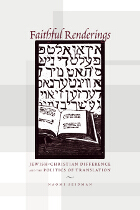
Bringing together central issues in translation studies with episodes in Jewish–Christian history, Naomi Seidman considers a range of texts, from the Bible to Elie Wiesel’s Night, delving into such controversies as the accuracy of various Bible translations, the medieval use of converts from Judaism to Christianity as translators, the censorship of anti-Christian references in Jewish texts, and the translation of Holocaust testimony. Faithful Renderings ultimately reveals that translation is not a marginal phenomenon but rather a crucial issue for understanding the relations between Jews and Christians and indeed the development of each religious community.

This description of the Americanization of a European institution, the Puritan ministry as it was transported to the New England colonies in the seventeenth century, offers a host of new insights into American religious history. By focusing on such areas as the ministers’ authority, church membership, and ecclesiastical organization, David D. Hall shows that, although the effects of the American experience might be considered liberalizing or democratizing in the first years of settlement, during the entire course of the seventeenth century the New World environment produced an institutional development that returned the churches to forms and doctrines that existed before the emigration from Europe.
The Faithful Shepherd not only sustains a bold thesis about Americanization but also affords the reader one of the freshest and most comprehensive histories of the seventeenth-century New England mind and society. This new printing contains a new introduction reflecting on how our understanding of seventeenth-century New England has developed since the book was first published.
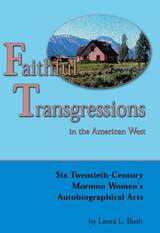
The central issue Bush finds in these works is how their authors have dealt with the authority of Mormon Church leaders. As she puts it in her preface, "I use the phrase 'faithful transgression' to describe moments in the texts when each writer, explicitly or implicitly, commits herself in writing to trust her own ideas and authority over official religious authority while also conceiving of and depicting herself to be a 'faithful' member of the Church." Bush recognizes her book as her own act of faithful transgression. Writing it involved wrestling, she states, "with my own deeply ingrained religious beliefs and my equally compelling education in feminist theories that mean to liberate and empower women."
Faithful Transgressions examines a remarkable group of authors and their highly readable and entertaining books. In producing the first significant book-length study of Mormon women's autobiographical writing, Bush rides a wave of memoir publishing and academic interest in autobiography and other life narratives. As she elucidates these works in relation to the religious tradition that played a major role in shaping them, she not only positions them in relation to feminist theory and current work on women's life writings but ties them to the long literary tradition of spiritual autobiography.
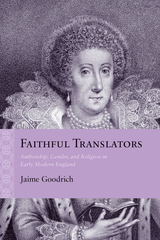
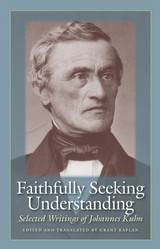
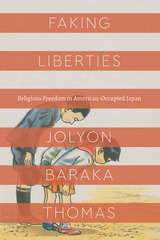
Through a fresh analysis of pre-war Japanese law, Jolyon Baraka Thomas demonstrates that the occupiers’ triumphant narrative obscured salient Japanese political debates about religious freedom. Indeed, Thomas reveals that American occupiers also vehemently disagreed about the topic. By reconstructing these vibrant debates, Faking Liberties unsettles any notion of American authorship and imposition of religious freedom. Instead, Thomas shows that, during the Occupation, a dialogue about freedom of religion ensued that constructed a new global set of political norms that continue to form policies today.

Shem-Tov Falaquera (c. 1225–1295) was a student of the writings of Maimonides and a leading expositor of the medieval Islamic and Jewish philosophical traditions. His Epistle of the Debate (Iggeret ha-Vikkuah) is a delightful dialogue between two Jews, one learned in philosophy and the other not, about the permissibility and desirability of philosophical investigation by Jews.
It is perhaps the most important medieval text devoted to the theme of the relationship between reason and religion by a Jewish thinker, and it is an excellent introduction to Jewish philosophy. This volume contains the first critical edition of the Hebrew text of the Epistle of the Debate and an annotated English translation, the first into a modern language. The volume also includes essays on the sources of the Epistle and on Falaquera's position on the relation between reason and religion.
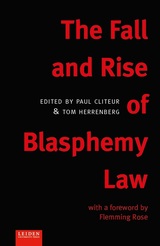

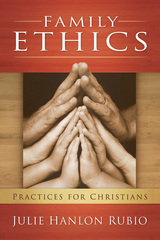
How can ordinary Christians find moral guidance for the mundane dilemmas they confront in their daily lives? To answer this question, Julie Hanlon Rubio brings together a rich Catholic theology of marriage and a strong commitment to social justice to focus on the place where the ethics of ordinary life are played out: the family.
Sex, money, eating, spirituality, and service. According to Rubio, all are areas for practical application of an ethics of the family. In each area, intentional practices can function as acts of resistance to a cultural and middle-class conformity that promotes materialism over relationships. These practices forge deep connections within the family and help families live out their calling to be in solidarity with others and participate in social change from below. It is through these everyday moral choices that most Christians can live out their faith—and contribute to progress in the world.
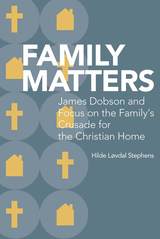
James Dobson—child psychologist, author, radio personality, and founder of the Christian conservative organization Focus on the Family—published his first book, Dare to Discipline, in 1970 and quickly became the go-to family expert for evangelical parents across the United States as American evangelicalism rose as a major political force. The family expert became a leading voice in the Reagan Revolution, and played a role in making American evangelicals even more firmly associated with the Republican Party. Dobson’s principle beliefs are that the family is the center of Christian America and that the traditional family must be defended from perceived threats such as gay rights, feminism, abortion, and the secularization of public schools. Dobson and Focus on the Family dominated Christian media through print, radio, and online venues, and their message reached millions of American evangelical households, shaping the cultural sensibilities and political attitudes of evangelical families throughout the culture wars from the 1980s into the 2000s.
Family Matters: James Dobson and Focus on the Family’s Crusade for the Christian Home by Hilde Løvdal Stephens is an insightful history and analysis of James Dobson’s rise to fame, effect on American evangelical culture, and subsequent descent from relevance. Extensively researched, Løvdal Stephens scoured through Dobson’s books, articles, and other materials published by Focus on the Family in order to explore how evangelicals defined and defended the traditional family as an ideal and as a symbol in an ever-changing world.
By contextualizing the history of Dobson’s reign, Løvdal Stephens’s discerning analysis fills an important gap in our understandings of the politics and culture of late twentieth-century conservative Christianity in the United States. She explores complex topics ranging from Dobson’s celebration of what he believes are timeless biblical values, such as maintaining strict and defined gender roles, to the ways Dobson and Focus on the Family balanced their basic ideals with real everyday lives of average American evangelical families, facing the realities of divorce, working mothers, and other perceived threats to the traditional family.
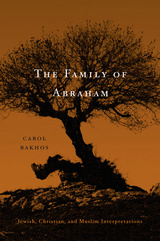
The term “Abrahamic religions” has gained considerable currency in both scholarly and ecumenical circles as a way of referring to Judaism, Christianity, and Islam. In The Family of Abraham, Carol Bakhos steps back from this convention to ask a frequently overlooked question: What, in fact, is Abrahamic about these three faiths? Exploring diverse stories and interpretations relating to the portrayal of Abraham, she reveals how he is venerated in these different scriptural traditions and how scriptural narratives have been pressed into service for nonreligious purposes.
Grounding her study in a close examination of ancient Jewish textual practices, primarily midrash, as well as medieval Muslim Stories of the Prophets and the writings of the early Church Fathers, Bakhos demonstrates that ancient and early-medieval readers often embellished the image of Abraham and his family—Sarah, Hagar, Ishmael, and Isaac. Her analysis dismantles pernicious misrepresentations of Abraham’s firstborn son, Ishmael, and provocatively challenges contemporary references to Judaism and Islam as sibling religions.
As Bakhos points out, an uncritical adoption of the term “Abrahamic religions” not only blinds us to the diverse interpretations and traditions of Judaism, Christianity, and Islam but also artificially separates these faiths from their historical contexts. In correcting mistaken assumptions about the narrative and theological significance of Abraham, The Family of Abraham sheds new light on key figures of three world religions.
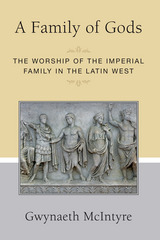
Roman politics and religion were inherently linked as the Romans attempted to explain the world and their place within it. As Roman territory expanded and power became consolidated into the hands of one man, people throughout the empire sought to define their relationship with the emperor by granting honors to him. This collection of practices has been labeled “emperor worship” or “ruler cult,” but this tells only half the story: imperial family members also became an important part of this construction of power and almost half of the individuals deified in Rome were wives, sisters, children, and other family members of the emperor.
In A Family of Gods, Gwynaeth McIntyre expands current “ruler cult” discussions by including other deified individuals, and by looking at how communities in the period 44 BCE to 337 CE sought to connect themselves with the imperial power structure through establishing priesthoods and cult practices. This work focuses on the priests dedicated to the worship of the imperial family in order to contextualize their role in how imperial power was perceived in the provincial communities and the ways in which communities chose to employ religious practices. Special emphasis is given to the provinces in Gaul, Spain, and North Africa.
This book draws on epigraphic evidence but incorporates literary, numismatic, and archaeological evidence where applicable. It will be of interest to scholars of Roman imperial cult as well as Roman imperialism, and religious and political history.

Statistics on the American family are sobering. From 1975 to 2000, one-third of all children were born to single mothers, and one-half of all marriages ended in divorce. While children from broken homes are two to three times more likely to develop behavioral and learning difficulties, two-parent families are not immune to problems. The cost of raising children has increased dramatically, and married couples with children are now twice as likely as childless couples to file for bankruptcy. Clearly, the American family is in trouble. But how this trouble started, and what should be done about it, remain hotly contested.
In a multifaceted analysis of the current state of a complex institution, Family Transformed brings together outstanding scholars from the fields of anthropology, demography, ethics, history, law, philosophy, primatology, psychology, sociology, and theology. Demonstrating that the family is both distinctive in its own right and deeply interwoven with other institutions, the authors examine the roles of education, work, leisure, consumption, legal regulation, public administration, and biology in shaping the ways we court and marry, bear and raise children, and make and break family bonds.
International in approach, this wide-ranging volume situates current American debates over sex, marriage, and family within a global framework. Weighing mounting social science evidence that supports a continued need for the nuclear family while assessing the challenges posed by new advocacy for same-sex marriage, and delegalized coupling, the authors argue that only by reintegrating the family into a just moral order of the larger community and society can we genuinely strengthen it. This means not simply upholding traditional family values but truly grasping the family's growing diversity, sustaining its coherence, and protecting its fragility for our own sake and for the common good of society.

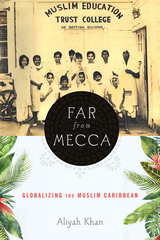
Far from Mecca: Globalizing the Muslim Caribbean is the first academic work on Muslims in the English-speaking Caribbean. Khan focuses on the fiction, poetry, and music of Islam in Guyana, Trinidad, and Jamaica. Combining archival research, ethnography, and literary analysis, Khan argues for a historical continuity of Afro- and Indo-Muslim presence and cultural production in the Caribbean. Case studies explored range from Arabic-language autobiographical and religious texts written by enslaved Sufi West Africans in nineteenth-century Jamaica, to early twentieth-century fictions of post-indenture South Asian Muslim indigeneity and El Dorado, to the attempted government coup in 1990 by the Jamaat al-Muslimeen in Trinidad, as well as the island’s calypso music, to contemporary judicial cases concerning Caribbean Muslims and global terrorism. Khan argues that the Caribbean Muslim subject, the “fullaman,” a performative identity that relies on gendering and racializing Islam, troubles discourses of creolization that are fundamental to postcolonial nationalisms in the Caribbean.
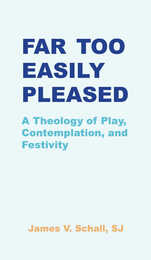
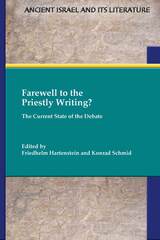
Now available in English
In discussions of the origin of the Pentateuch, the Priestly source traditionally constitutes an undisputed reference point for different source-critical models, and it is the only literary layer with concise terminology and a theological conception that can be extracted from a non-Priestly context. This English translation of Abschied von der Priesterschrift? Zum Stand der Pentateuchdebatte revisits the scholarly debate surrounding the Documentary Hypothesis and the so-called Priestly material’s position either as an independent written source or as a redaction within the books of Genesis through Deuteronomy. Contributors include Christoph Berner, Erhard Blum, Jan Christian Gertz, Christoph Levin, Eckart Otto, Christophe Nihan, and Thomas Römer.

Primarily known as the author of the Dialogus miraculorum—a collection of exemplary stories that secured his reputation as the master of Cistercian storytelling—Caesarius of Heisterbach was also the author of several sermons and homilies. Although they are not as well known today, his Homilies on Jesus’ Childhood are exceptional in many ways. Readers will immediately notice Caesarius’s versatility as he employs an impressive array of persuasive techniques: quoting scholarly works, interpreting Hebrew names and letters, delving into etymology and numerology, and including numerous examples to instruct both the learned and the common person.
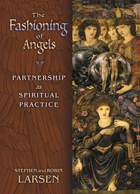
Stephen and Robin Larsen, authors of A Fire in the Mind, the authorized biography of their friend Joseph Campbell, explore man-woman relationships, questing for the answer to the timeless question, "What do couples really want?"
The Larsens look to ancient wisdom -- the realm of mythology -- to solve the relationship riddle. Storytelling artists, they underline the powerful messages in the myths, folktales, and fairytales described in the book, stories that help heal wounds of gender wars. Experiential exercises the Larsens have developed deepen couples' spiritual bonds.
Readers "eavesdrop" on issues in the Larsens' own marriage; their dialogs about their own relating process bring passion and intimacy to the book.


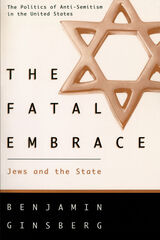
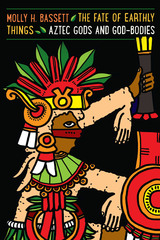
Following their first contact in 1519, accounts of Aztecs identifying Spaniards as gods proliferated. But what exactly did the Aztecs mean by a “god” (teotl), and how could human beings become gods or take on godlike properties? This sophisticated, interdisciplinary study analyzes three concepts that are foundational to Aztec religion—teotl (god), teixiptla (localized embodiment of a god), and tlaquimilolli (sacred bundles containing precious objects)—to shed new light on the Aztec understanding of how spiritual beings take on form and agency in the material world.
In The Fate of Earthly Things, Molly Bassett draws on ethnographic fieldwork, linguistic analyses, visual culture, and ritual studies to explore what ritual practices such as human sacrifice and the manufacture of deity embodiments (including humans who became gods), material effigies, and sacred bundles meant to the Aztecs. She analyzes the Aztec belief that wearing the flayed skin of a sacrificial victim during a sacred rite could transform a priest into an embodiment of a god or goddess, as well as how figurines and sacred bundles could become localized embodiments of gods. Without arguing for unbroken continuity between the Aztecs and modern speakers of Nahuatl, Bassett also describes contemporary rituals in which indigenous Mexicans who preserve costumbres (traditions) incorporate totiotzin (gods) made from paper into their daily lives. This research allows us to understand a religious imagination that found life in death and believed that deity embodiments became animate through the ritual binding of blood, skin, and bone.
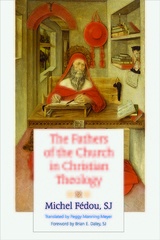
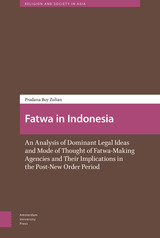

In this fascinating interpretation of contemporary culture and theology, Harvey Cox examines both the loss and reemergence of festivity and fantasy in Western civilization. He evaluates both processes from a theological perspective, defining festivity as the capacity for genuine revelry and joyous celebration and defining fantasy as the faculty for envisioning radically alternative life situations. He asserts that both are absolutely vital to contemporary human life and faith; both are a precondition for genuine social transformation. In a success and money-oriented society we need a rebirth of unapologetically unproductive festivity and expressive celebration. In an age that has quarantined parody and separated politics from imagination, we need a renaissance of social fantasy.
It has been said over and over again that affluent Western man has been gaining the whole world while losing his soul. In the face of this Mr. Cox affirms the possibility and necessity of a resurgence of hope, celebration, liberation, and experimentation. The medieval Feast of Fools, from which he has taken his title, symbolizes both the problem and the process. Centuries ago it provided an opportunity for the choirboy to play bishop and for serious townsfolk to mock the stately rituals of church and court. The eventual disappearance of the custom in the sixteenth century, unlamented if not welcomed by those in authority, illustrates the concerns of this provocative and controversial essay. Mr. Cox does not propose that a medieval practice should be revived, but he does argue for a rebirth in our own cultural idiom of what was right and good about the Feast of Fools.
It is likely that this book will become significant in wide circles. It speaks directly to such contemporary movements as the theology of hope, the rapidly disappearing radical theology, and the theology of culture. For many it will provide a new perspective on the renewal of religious life and the secular search for religious experience. For others it will function as a window into the experimental laboratories of the so-called "underground church." For everyone it is a refreshing encounter with a wholly new set of perceptive observations about the problems that plague us.

Kapferer focuses on sorcery among Sinhalese Buddhists in Sri Lanka to explore how the art of sorcery is in fact deeply connected to social practices and lived experiences such as birth, death, sickness, and war. He describes in great detail the central ritual of exorcism, a study which opens up new avenues of thought that challenge anthropological approaches to such topics as the psychological forces of emotion and the dynamics of power. Overcoming both "orientalist" bias and postmodern permissiveness, Kapferer compellingly reframes sorcery as a pragmatic, conscious practice which, through its dynamic of destruction and creation, makes it possible for humans to reconstruct repeatedly their relation to the world.
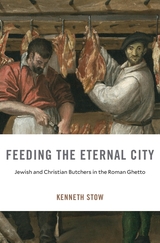
A surprising history of interfaith collaboration in the Roman Ghetto, where for three centuries Jewish and Christian butchers worked together to provision the city despite the proscriptions of Church law.
For Rome’s Jewish population, confined to a ghetto between 1555 and 1870, efforts to secure kosher meat were fraught with challenges. The city’s papal authorities viewed kashrut—the Jewish dietary laws—with suspicion, and it was widely believed that kosher meat would contaminate any Christian who consumed it. Supplying kosher provisions entailed circumventing canon law and the institutions that regulated the butchering and sale of meat throughout the city.
Kenneth Stow finds that Jewish butchers collaborated extensively with their Christian counterparts to ensure a supply of kosher meat, regardless of the laws that prohibited such interactions. Jewish butchers sold nonkosher portions of slaughtered animals daily to Christians outside the ghetto, which in turn ensured the affordability of kosher meat. At the same time, Christian butchers also found it profitable to work with Jews, as this enabled them to sell good meat otherwise unavailable at attractive prices. These relationships could be warm and almost intimate, but they could also be rife with anger, deception, and even litigation. Nonetheless, without this close cooperation—and the willingness of authorities to turn a blind eye to it—meat-eating in the ghetto would have been nearly impossible. Only the rise of the secular state in the late nineteenth century brought fundamental change, putting an end to canon law and allowing the kosher meat market to flourish.
A rich social history of food in early modern Rome, Feeding the Eternal City is also a compelling narrative of Jewish life and religious acculturation in the capital of Catholicism.
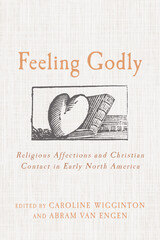
Feeling Godly brings together well-known and highly regarded scholars of early American history and literature, Native American studies, African American history, and religious studies to investigate the shape, feel, look, theology, and influence of religious affections in early American sites of contact with and between Christians. While remaining focused on the question of religious affections, these essays span a wide range of early North American cultures, affiliations, practices, and devotions, and enable a comparative approach that draws together a history of emotions with a history of religion.
In addition to the volume editors, this collection includes essays from Joanna Brooks, Kathleen Donegan, Melissa Frost, Stephanie Kirk, Jon Sensbach, Scott Manning Stevens, and Mark Valeri, with an afterword by Barbara H. Rosenwein.
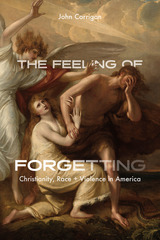
The dual traumas of colonialism and slavery are still felt by Native Americans and African Americans as victims of ongoing violence toward people of color today. In The Feeling of Forgetting, John Corrigan calls attention to the trauma experienced by white Americans as perpetrators of this violence. By tracing memory’s role in American Christianity, Corrigan shows how contemporary white Christian nationalism is motivated by a widespread effort to forget the role race plays in American society. White trauma, Corrigan argues, courses through American culture like an underground river that sometimes bursts forth into brutality, terrorism, and insurrection. Tracing the river to its source is a necessary first step toward healing.
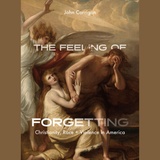
A provocative examination of how religious practices of forgetting drive white Christian nationalism.
The dual traumas of colonialism and slavery are still felt by Native Americans and African Americans as victims of ongoing violence toward people of color today. In The Feeling of Forgetting, John Corrigan calls attention to the trauma experienced by white Americans as perpetrators of this violence. By tracing memory’s role in American Christianity, Corrigan shows how contemporary white Christian nationalism is motivated by a widespread effort to forget the role race plays in American society. White trauma, Corrigan argues, courses through American culture like an underground river that sometimes bursts forth into brutality, terrorism, and insurrection. Tracing the river to its source is a necessary first step toward healing.
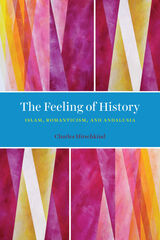
Against this xenophobic tendency, The Feeling of History examines the idea of Andalucismo—a modern tradition founded on the principle that contemporary Andalusia is connected in vitally important ways with medieval Islamic Iberia. Charles Hirschkind explores the works and lives of writers, thinkers, poets, artists, and activists, and he shows how, taken together, they constitute an Andalusian sensorium. Hirschkind also carefully traces the various itineraries of Andalucismo, from colonial and anticolonial efforts to contemporary movements supporting immigrant rights. The Feeling of History offers a nuanced view into the way people experience their own past, while also bearing witness to a philosophy of engaging the Middle East that experiments with alternative futures.
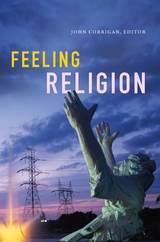
Contributors. Diana Fritz Cates, John Corrigan, Anna M. Gade, M. Gail Hamner, Abby Kluchin, Jessica Johnson, June McDaniel, David Morgan, Sarah M. Ross, Donovan Schaefer, Mark Wynn
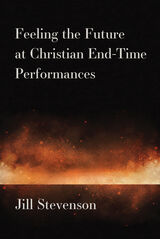
The book’s main focus is contemporary Christian End-Time performances and how they theatrically construct encounters with future time—not just images or ideas of a future, but viscerally and immediately real experiences of future time. Author Jill Stevenson’s examples are Hell Houses and Judgement Houses; Rapture House, a similarly styled “walk through drama” in North Carolina; Hell’s Gates, an “outdoor reality drama” in Dawsonville, Georgia; Ark Encounter, a full-size recreation of Noah’s Ark; and Tribulation Trail, an immersive thirteen-scene drama ministry based on the Book of Revelation. The book’s coda considers similarities between these Christian performances and secular survivalist prepper events, especially with respect to constructions of and language about time. In doing so, the author situates these performances within a larger tradition that challenges traditional secular/sacred distinctions and illuminates how the End Times has been employed in our current social and political moment.

Bringing Orthodox Christianity into the recent dialog on virtue ethics, Joseph Woodill investigates the correspondences between the Eastern Orthodox tradition and contemporary virtue ethics, and he develops a distinctly Orthodox vision of theological ethics.
This book fills a vacuum in our understanding of the Eastern Church by revealing themes, persons, and insights that offer resources for a contemporary moral theology. Reviewing the Eastern tradition from patristic times to the present, Woodill shows its relevance to contemporary virtue ethics and identifies both differences and similarities between Orthodox and other—Catholic, Protestant, and Jewish—virtue ethics.
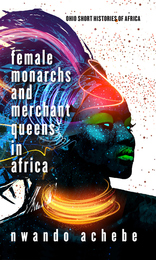
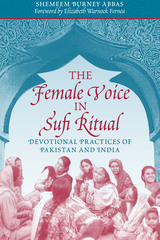
The female voice plays a more central role in Sufi ritual, especially in the singing of devotional poetry, than in almost any other area of Muslim culture. Female singers perform sufiana-kalam, or mystical poetry, at Sufi shrines and in concerts, folk festivals, and domestic life, while male singers assume the female voice when singing the myths of heroines in qawwali and sufiana-kalam. Yet, despite the centrality of the female voice in Sufi practice throughout South Asia and the Middle East, it has received little scholarly attention and is largely unknown in the West.
This book presents the first in-depth study of the female voice in Sufi practice in the subcontinent of Pakistan and India. Shemeem Burney Abbas investigates the rituals at the Sufi shrines and looks at women's participation in them, as well as male performers' use of the female voice. The strengths of the book are her use of interviews with both prominent and grassroots female and male musicians and her transliteration of audio- and videotaped performances. Through them, she draws vital connections between oral culture and the written Sufi poetry that the musicians sing for their audiences. This research clarifies why the female voice is so important in Sufi practice and underscores the many contributions of women to Sufism and its rituals.
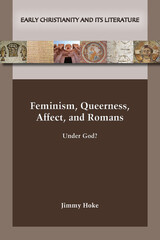
"This is a book about submission and subversion, injustice and justice, heroes and villains."
In Feminism, Queerness, Affect, and Romans: Under God? Jimmy Hoke reads Romans with an innovative, intersectional approach that produces distinctive meanings for passages that probe how queer wo/men who first encountered Paul's letter could have engaged with it. Though Paul's letter to the Romans arguably contains the Bible’s strongest condemnation of queer wo/men (1:26–27), that is not the letter's full story. Hoke turns a feminist and queer gaze toward Paul’s conception of faith and ethics, making explicit how Paul's theology throughout Romans has been affectively motivated by imperial notions of gender, race, and sexuality. Moving beyond Paul's singular voice, Hoke engages with a feminist and queer praxis of assemblage to generate plausible ways wo/men of Rome interacted with this epistle. By engaging affect theory, Hoke brings to life not only ideas and words but the feelings and sensations that moved in-between some of the earliest Christ-followers, revealing how queer wo/men were there among them and what that means for queer wo/men today. Hoke includes a reader's guide with key terms used throughout the book, making this an excellent option for both students and scholars beginning to engage not only Paul's letters but also the complex worlds of feminist, queer, and affect theories.
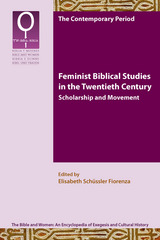
Chart the development of feminist approaches and theories of interpretation during the period when women first joined the ranks of biblical scholars
This collection of essays on feminist biblical studies in the twentieth century seeks to explore four areas of inquiry demanding further investigation. In the first section, articles chart the beginnings and developments of feminist biblical studies as a conversation among feminists around the world. The second section introduces, reviews, and discusses the hermeneutic religious spaces created by feminist biblical studies. The third segment discusses academic methods of reading and interpretation that dismantle androcentric language and kyriarchal authority. The fourth section returns to the first with work that transgresses academic boundaries in order to exemplify the transforming, inspiring, and institutionalizing feminist work that has been and is being done to change religious mindsets of domination and to enable wo/men to engage in critical readings of the Bible.
Features:
- Essays examine the rupture or break in the malestream reception history of the Bible
- Exploration of the term feminism in different social-cultural and theoretical-religious locations
- Authors from around the world present research and future directions for research challenging the next generation of feminist interpreters
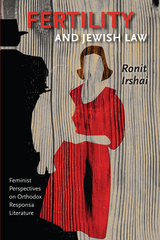
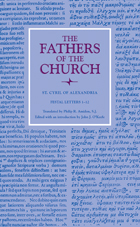
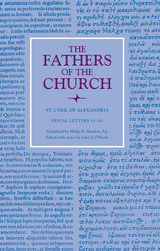
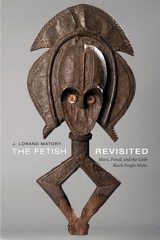
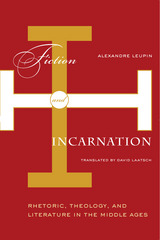
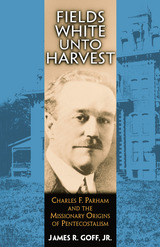
With fifty-one million people worldwide actively worshiping in Pentecostal circles, Pentecostalism is not only the single largest movement in Protestantism, but is arguably the single most important religious movement in modern times. But where did these Pentecostals come from? And how did a movement that began obscurely in turn-of-the-century Kansas come to have so much meaning for so many millions of people?
This biographical study of Charles Fox Parham offers a fascinating account of this movement’s origins in the American Midwest and of the one man most responsible for giving that movement its identity. An inspired itinerant preacher from the Kansas prairies, Parham pieced together the unique Pentecostal theology and dedicated his short life to spreading his message of divine hope—a message that was to strike a responsive chord in the hearts of a hard-working people discouraged by frequent economic depression. His story is one of both triumph and defeat, the saga of a sickly farm boy who by the age of thirty-three had converted almost ten thousand followers and yet, less than five years later, had fallen into obscurity, his name besmirched by scandal and his leadership repudiated by the very movement he had struggled so tirelessly to inspire.
Exhaustively researched, Fields White Unto Harvest is an in-depth study of the sociological significance of the Pentecostal movement, its roots in the evangelical thought of the late nineteenth century, and the several directions of its growth in the twentieth. Through Parham’s story, woven into a fascinating narrative by James Goff, we achieve a new understanding of the man behind the movement that would eventually alter the landscape of American religious history.

Helena Wall shows what life was like in colonial America, a culture where individuals and family were subordinated to the demands of the community. Using local town, church, and especially court records from every colony, she examines the division of authority between family and community throughout colonial America.
Although this close relationship and its consequences for private life bred many tensions and conflicts, the premises and conditions of that interdependent association persisted even into the nineteenth century. Wall sketches the subsequent changes and outlines the new arrangements of family and community life as the colonies moved toward the formation of a new nation.

The Fifth Prapāṭhaka of the Vādhūla Śrautasūtra includes a critical edition, followed by a translation and a commentary, of the fifth chapter (prapāṭhaka) of the Vādhūla Śrautasūtra. This chapter is dedicated to the description of the so-called “independent” animal sacrifice (nirūḍhapaśubandha) in Vedic ritual. This series of short monographs relates to particular aspects of the animal sacrifice described in the Veda and to problems of exegesis of Vedic texts.
The first part of this edition presents the translation and commentary, while the critical edition makes up the second part. The commentary highlights the peculiarities of the Vādhūla version of the nirūḍhapaśubandha. In the conclusion of the first part, the ancientness of the Vādhūla school is discussed, as well as its place within the corpus of Taittirīya texts.
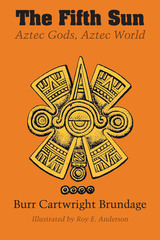
The ancient Aztecs dwelt at the center of a dazzling and complex cosmos. From this position they were acutely receptive to the demands of their gods. The Fifth Sun represents a dramatic overview of the Aztec conception of the universe and the gods who populated it—Quetzalcoatl, the Plumed Serpent; Tezcatlipoca, the Smoking Mirror; and Huitzilopochtli, the Southern Hummingbird. Burr Cartwright Brundage explores the myths behind these and others in the Aztec pantheon in a way that illuminates both the human and the divine in Aztec life.
The cult of human sacrifice is a pervasive theme in this study. It is a concept that permeated Aztec mythology and was the central preoccupation of the aggressive Aztec state. Another particularly interesting belief explored here is the “mask pool,” whereby gods could exchange regalia and, thus, identities.
This vivid and eminently readable study also covers the use of hallucinogens; cannibalism; the calendars of ancient Mexico; tlachtli, the life-and-death ball game; the flower wars; divine transfiguration; and the evolution of the war god of the Mexica. A splendid introduction to Aztec religion, The Fifth Sun also contains insights for specialists in ethnohistory, mythology, and religion.
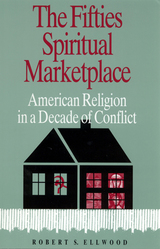
A companion to his Sixties Spiritual Awakening, Ellwood explores the major Catholic-Protestant tensions of the decade, the conflict between theology and popular faith, and the underground forms of fifties religiosity like "Beat" Zen, UFO contactees, Thomas Merton monasticism, and the Joseph Campbell / Carl Jung revival of mythology. Ellwood frames his detailed and lively account with the provocative idea of the fifties as a "supply-side" free enterprise spiritual marketplace, with heady competition between religious groups and leaders, and with church attendance at a record high.
In addition to challenging an idealistic fifties cultural milieu, the book analyzes American religious responses to key historical events like the Korean War, McCarthyism, and the civil rights movement, turning a religious lens on the cultural history of the United States.
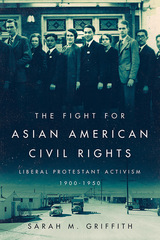
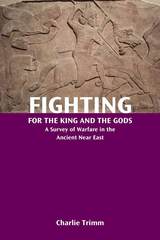
The most up-to-date sourcebook on warfare in the ancient Near East
Fighting for the King and the Gods provides an introduction to the topic of war and the variety of texts concerning many aspects of warfare in the ancient Near East. These texts illustrate various viewpoints of war and show how warfare was an integral part of life. Trimm examines not only the victors and the famous battles, but also the hardship that war brought to many. While several of these texts treated here are well known (i.e., Ramses II's battle against the Hittites at Qadesh), others are known only to specialists. This work will allow a broader audience to access and appreciate these important texts as they relate to the history and ideology of warfare.
Features
- References to recent secondary literature for further study
- Early Greek and Chinese illustrative texts for comparisons with other cultures
- Indices to help guide the reader
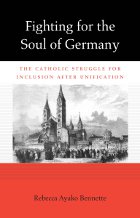
Historians have long believed that Catholics were late and ambivalent supporters of the German nation. Rebecca Ayako Bennette’s bold new interpretation demonstrates definitively that from the beginning in 1871, when Wilhelm I was proclaimed Kaiser of a unified Germany, Catholics were actively promoting a German national identity for the new Reich.
In the years following unification, Germany was embroiled in a struggle to define the new nation. Otto von Bismarck and his allies looked to establish Germany as a modern nation through emphasis on Protestantism and military prowess. Many Catholics feared for their future when he launched the Kulturkampf, a program to break the political and social power of German Catholicism. But these anti-Catholic policies did not destroy Catholic hopes for the new Germany. Rather, they encouraged Catholics to develop an alternative to the Protestant and liberal visions that dominated the political culture. Bennette’s reconstruction of Catholic thought and politics sheds light on several aspects of German life. From her discovery of Catholics who favored a more “feminine” alternative to Bismarckian militarism to her claim that anti-socialism, not anti-Semitism, energized Catholic politics, Bennette’s work forces us to rethink much of what we know about religion and national identity in late nineteenth-century Germany.
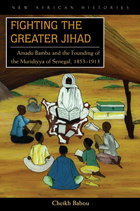
In Senegal, the Muridiyya, a large Islamic Sufi order, is the single most influential religious organization, including among its numbers the nation’s president. Yet little is known of this sect in the West. Drawn from a wide variety of archival, oral, and iconographic sources in Arabic, French, and Wolof, Fighting the Greater Jihad offers an astute analysis of the founding and development of the order and a biographical study of its founder, Cheikh Ahmadu Bamba Mbakke.
Cheikh Anta Babou explores the forging of Murid identity and pedagogy around the person and initiative of Amadu Bamba as well as the continuing reconstruction of this identity by more recent followers. He makes a compelling case for reexamining the history of Muslim institutions in Africa and elsewhere in order to appreciate believers’ motivation and initiatives, especially religious culture and education, beyond the narrow confines of political collaboration and resistance. Fighting the Greater Jihad also reveals how religious power is built at the intersection of genealogy, knowledge, and spiritual force, and how this power in turn affected colonial policy.
Fighting the Greater Jihad will dramatically alter the perspective from which anthropologists, historians, and political scientists study Muslim mystical orders.
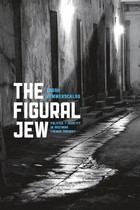
The rootless Jew, wandering disconnected from history, homeland, and nature, was often the target of early twentieth-century nationalist rhetoric aimed against modern culture. But following World War II, a number of prominent French philosophers recast this maligned figure in positive terms, and in so doing transformed postwar conceptions of politics and identity.
Sarah Hammerschlag explores this figure of the Jew from its prewar usage to its resuscitation by Jean-Paul Sartre, Emmanuel Levinas, Maurice Blanchot, and Jacques Derrida. Sartre and Levinas idealized the Jew’s rootlessness in order to rethink the foundations of political identity. Blanchot and Derrida, in turn, used the figure of the Jew to call into question the very nature of group identification. By chronicling this evolution in thinking, Hammerschlag ultimately reveals how the figural Jew can function as a critical mechanism that exposes the political dangers of mythic allegiance, whether couched in universalizing or particularizing terms.
Both an intellectual history and a philosophical argument, The Figural Jew will set the agenda for all further consideration of Jewish identity, modern Jewish thought, and continental philosophy.
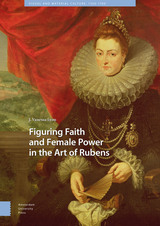
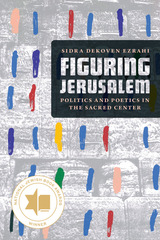
For two thousand years, Hebrew writers used their exile from the Holy Land as a license for invention. The question at the heart of Figuring Jerusalem is this: how did these writers bring their imagination “home” in the Zionist century? Sidra DeKoven Ezrahi finds that the same diasporic conventions that Hebrew writers practiced in exile were maintained throughout the first half of the twentieth century. And even after 1948, when the state of Israel was founded but East Jerusalem and its holy sites remained under Arab control, Jerusalem continued to figure in the Hebrew imagination as mediated space. It was only in the aftermath of the Six Day War that the temptations and dilemmas of proximity to the sacred would become acute in every area of Hebrew politics and culture.
Figuring Jerusalem ranges from classical texts, biblical and medieval, to the post-1967 writings of S. Y. Agnon and Yehuda Amichai. Ultimately, DeKoven Ezrahi shows that the wisdom Jews acquired through two thousand years of exile, as inscribed in their literary imagination, must be rediscovered if the diverse inhabitants of Jerusalem are to coexist.
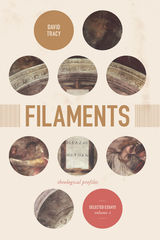
Filaments arranges its subjects in rough chronological order, from choices in ancient theology, such as Augustine, through the likes of William of St. Thierry in the medieval period and Martin Luther and Michelangelo in the early modern, and, finally, to modern and contemporary thinkers, including Bernard Lonergan, Paul Tillich, Simone Weil, Karl Rahner, Reinhold Niebuhr, and Iris Murdoch. Taken together, these essays can be understood as a partial initiation into a history of Christian theology defined by Tracy’s key virtues of plurality and ambiguity. Marked by surprising insights and connections, Filaments brings the work of one of North America’s most important religious thinkers once again to the forefront to be celebrated by longtime and new readers alike.
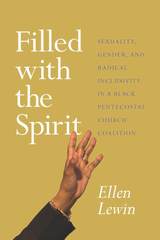
In Filled with the Spirit, Ellen Lewin gives us a deeply empathetic ethnography of the worship and community central to TFAM, telling the story of how the doctrine of radical inclusivity has expanded beyond those it originally sought to serve to encompass people of all races, genders, sexualities, and religious backgrounds. Lewin examines the seemingly paradoxical relationship between TFAM and traditional black churches, focusing on how congregations and individual members reclaim the worship practices of these churches and simultaneously challenge their authority. The book looks closely at how TFAM worship is legitimated and enhanced by its use of gospel music and considers the images of food and African American culture that are central to liturgical imagery, as well as how understandings of personal authenticity tie into the desire to be filled with the Holy Spirit. Throughout, Lewin takes up what has been mostly missing from our discussions of race, gender, and sexuality—close attention to spirituality and faith.
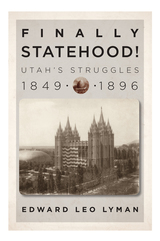
Aware of the complexity of this fifty-year struggle, historian Edward Leo Lyman carefully traces the key figures, events, and cultural shifts leading to Utah’s admission to the Union. Utilizing an abundance of careful research, Finally Statehood! is a unique attempt to understand the state’s history on both a local and national level, with each political roadblock, religious conflict, and earnest attempt at compromise meticulously examined under the vantage of time.
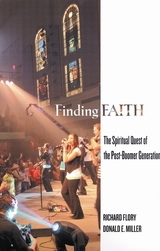
Just as the formative experiences of Baby Boomers were colored by such things as the war in Vietnam, the 1960s, and a dramatic increase in their opportunities for individual expression, so Post-Boomers have grown up in less structured households with working (often divorced) parents. These childhood experiences leave them craving authentic spiritual experience, rather than entertainment, and also cause them to question institutions. Flory and Miller develop a typology that captures four current approaches to the Christian faith and argue that this generation represents a new religious orientation of "expressive communalism," in which they seek spiritual experience and fulfillment in community and through various expressive forms of spirituality, both private and public.
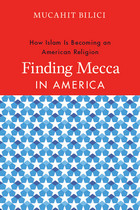
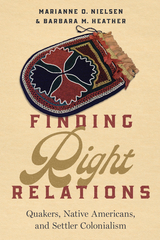
Centering on the relationship between Quaker colonists and the Lenape people, Finding Right Relations explores the contradictory position of the Quakers as both egalitarian, pacifist people, and as settler colonists. This book explores major challenges to Quaker beliefs and resulting relations with American Indians from the mid-seventeenth century to the late nineteenth century. It shows how the Quakers not only failed to prevent settler colonial violence against American Indians but also perpetuated it. It provides historical examples such as the French and Indian War, the massacre of the Conestoga Indians, and the American Indian boarding schools to explore the power of colonialism to corrupt even those colonists with a belief system rooted in social justice.
While this truth rubs against Quaker identity as pacifists and socially conscious, justice-minded people, the authors address how facing these truths provide ways forward for achieving restitution for the harms of the past. This book offers a path to truth telling that is essential to the healing process.

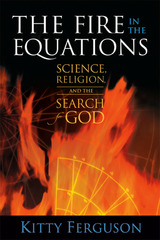
“ In this beautifully and intelligently written book, Ferguson not only reports on some of the intellectual tremors jolting the world of thinking women and men, but also considers the basic questions with penetrating analysis, yet at a very readable level. . . . An excellent book.” —Choice
Heralded for its readability and scholarship, The Fire in the Equations offers a fascinating discussion of scientific discoveries and their impact on our beliefs. The book’s title is derived from Dr. Stephen Hawking’s pondering, “What is it that breathes fire into the equations and makes a universe for them to describe?”
Originally published in the U.S. in 1995, it provides an excursion through new theories of quantum physics and cosmology, ranging from the nature of time, the big bang, the “unreasonable effectiveness” of mathematics, laws of nature, and their possible relation to God, chaos theory, black holes, Heisenberg’s uncertainty principle, particle physics, Darwin's theory of evolution, and the role of God in all these equations. It even raises such questions as “how God might answer prayers” from the point of view of physics.
While she gives no absolute answers, Kitty Ferguson takes the reader through a world of paradoxes and improbabilities, explaining how believing in a pre-determined universe and free will as a theory of human behavior is possible. She concludes that what we know about science doesn't necessarily make God inevitable, but does not rule God out either.
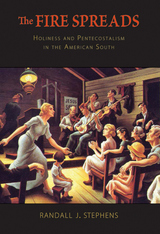
Today pentecostalism claims nearly 500 million followers worldwide. An early stronghold was the American South, where believers spoke in unknown tongues, worshipped in free-form churches, and broke down social barriers that had long divided traditional Protestants. Thriving denominations made their headquarters in the region and gathered white and black converts from the Texas plains to the Carolina low country.
Pentecostalism was, in fact, a religious import. It came to the South following the post-Civil War holiness revival, a northern-born crusade that emphasized sinlessness and religious empowerment. Adherents formed new churches in the Jim Crow South and held unconventional beliefs about authority, power, race, and gender. Such views set them at odds with other Christians in the region. By 1900 nearly all southern holiness folk abandoned mainline churches and adopted a pessimistic, apocalyptic theology. Signs of the last days, they thought, were all around them.
The faith first took root among anonymous religious zealots. It later claimed southern celebrities and innovators like televangelists Oral Roberts, Jimmy Swaggart, T. D. Jakes, and John Hagee; rock-and-roll icons Elvis Presley, Jerry Lee Lewis, and Little Richard; and, more recently, conservative political leaders such as John Ashcroft.
With the growth of southern pentecostal denominations and the rise of new, affluent congregants, the movement moved cautiously into the evangelical mainstream. By the 1980s the once-apolitical faith looked entirely different. Many still watched and waited for spectacular signs of the end. Yet a growing number did so as active political conservatives.
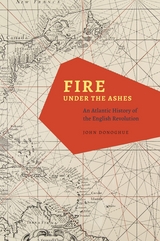
Prominent merchant revolutionaries from Coleman Street led England’s imperial expansion by investing deeply in the slave trade and projects of colonial conquest. Opposing them were other Coleman Street puritans, who having crossed and re-crossed the ocean as colonists and revolutionaries, circulated new ideas about the liberty of body and soul that they defined against England’s emergent, political economy of empire. These transatlantic radicals promoted social justice as the cornerstone of a republican liberty opposed to both political tyranny and economic slavery—and their efforts, Donoghue argues, provided the ideological foundations for the abolitionist movement that swept the Atlantic more than a century later.
READERS
Browse our collection.
PUBLISHERS
See BiblioVault's publisher services.
STUDENT SERVICES
Files for college accessibility offices.
UChicago Accessibility Resources
home | accessibility | search | about | contact us
BiblioVault ® 2001 - 2024
The University of Chicago Press









